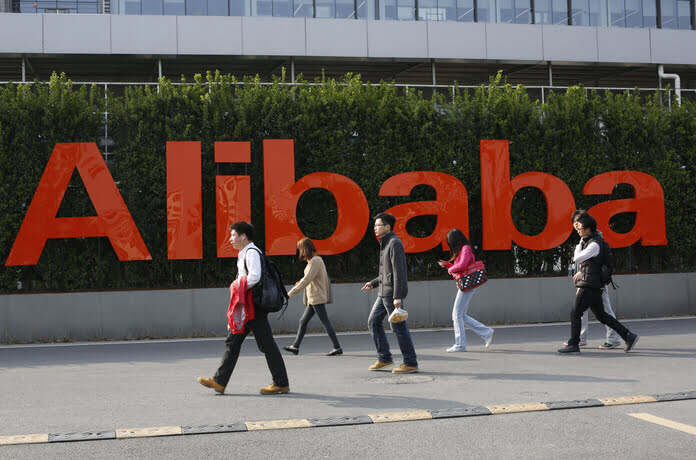Tech stocks have seen significant growth in 2023, with the Nasdaq Composite ($NASX) delivering an impressive first-half performance. However, Chinese tech giant Alibaba (NYSE:BABA) has experienced a more modest 7.8% increase in its stock value, lagging behind both U.S. tech stocks and its Chinese counterparts like Baidu (BIDU).
In the past few years, Alibaba’s stock has struggled to match the performance of its U.S. tech peers. The company reached its all-time high in 2020 but experienced declines in both 2021 and 2022. Factors such as China’s suspension of Ant Financial’s IPO, a broad-based tech crackdown in the country, and increased competition have contributed to Alibaba’s underperformance.
Reasons Behind Alibaba’s Underperformance
- Impact of Ant Financial IPO Suspension: Alibaba’s troubles began with the suspension of Ant Financial’s IPO in November 2020. The anticipated IPO was expected to be the largest ever, and its cancellation hindered Alibaba’s ability to capitalize on its investment in Ant.
- Broad-Based Tech Crackdown in China: The Chinese government’s crackdown on the tech sector, coupled with the nation’s zero-COVID policy and an economic slowdown, has adversely affected Alibaba and other Chinese tech companies.
- Declining Market Share: Alibaba has been losing market share in China, with its yuan-denominated sales only increasing by 2% last year, falling short of overall growth in the country’s online retail sales. Additionally, its U.S. dollar-denominated revenues experienced a year-over-year decline for the first time.
- Ongoing US-China Tech War: The ongoing tech war between the United States and China has further impacted the valuations of Chinese tech stocks, including Alibaba.
Alibaba’s Efforts for a Comeback
To combat its underperformance, Alibaba has taken several strategic steps:
- Business Restructuring: The company announced a restructuring plan that divides its business into six units, aimed at adding shareholder value and potentially unlocking the hidden value in its various businesses.
- Investment in Generative AI and Chatbot Launch: Alibaba has ventured into generative AI and introduced its own chatbot to compete with other tech giants in this space.
- Increased Stock Buyback Program: To capitalize on the dip in its stock price, Alibaba expanded its stock buyback program.
Positive Macroeconomic Environment
China’s stance toward tech companies seems to be softening, with the government expressing support for domestic tech firms to boost economic growth. This shift may work in Alibaba’s favor and provide a conducive environment for its growth.
Alibaba Stock: A Good Value Buy?
Here are four reasons why Alibaba stock appears to be a compelling investment:
- Anticipated Revenue and Earnings Growth: Analysts project that Alibaba’s revenues will rise by 9% each in the current and next fiscal year, with earnings expected to grow by 20% in the next fiscal year.
- Business Reorganization Potential: Alibaba’s plan to list its businesses as separate entities could unlock additional value, as the true potential of these businesses might not be fully reflected in the company’s current stock price.
- Favorable Valuation: Alibaba stock currently trades at a forward price-to-sales multiple of 1.84x, substantially below its five-year average of 4.46x. Its price-to-earnings-to-growth (PEG) ratio of 0.71x is also attractive, indicating potential undervaluation.
- Positive Analyst Sentiment: Wall Street analysts have expressed strong bullish sentiment, with the majority rating Alibaba stock as a Strong Buy. The mean target price of $143.62 represents a 51% premium to the current levels, while the Street-high target price of $183 suggests an impressive 93% potential return.
In conclusion, Alibaba’s efforts to revitalize its business, the changing macroeconomic landscape in China, and its attractive valuation make it an appealing investment option, especially for those seeking exposure to high-growth industries and China’s economy. However, as with any investment, careful analysis and consideration of potential risks are essential.
Featured Image: Megapixl















